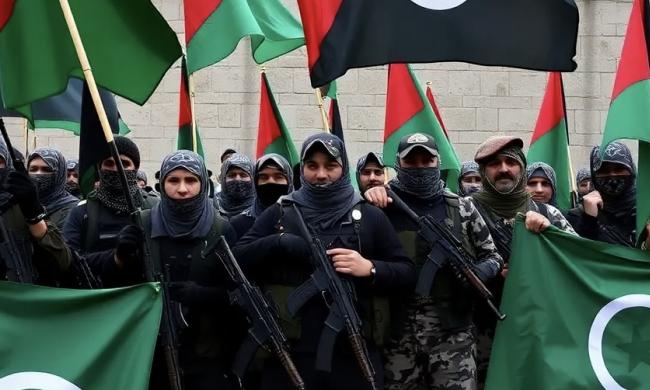
Hamas is preparing to appoint a new political leader from outside of Gaza after Yahya Sinwar, a key figure in the group, was killed in a confrontation with Israeli forces on Wednesday. Sinwar, who played a pivotal role in the October 7, 2023 attack that intensified the conflict in Gaza, had previously unified the military and political branches of Hamas.
It is anticipated that the new leader will operate from outside of Gaza, while Sinwar’s brother, Mohammad Sinwar, is expected to take on a larger role in managing the ongoing conflict with Israel. Experts believe Hamas will need to balance the interests of Iran, its main supporter, with those of Qatar, where many top candidates for the new leader are currently based.
The group now faces the challenge of maintaining unity and strategic direction following the loss of Sinwar, who is the second senior leader to be killed in recent months. Former leader Ismail Haniyeh was also killed in July, an act attributed to Israeli forces.
According to Reuters, more than a year of Israeli military actions has severely weakened Hamas, claiming the lives of thousands of fighters and top leaders both in and outside Gaza, leaving the group’s future uncertain.
Khalil Al-Hayya, who served as Sinwar’s deputy, and a potential successor, made a bold statement on Friday, declaring that Israeli hostages would not be released until Israeli forces withdrew from Gaza and the war concluded.
Hamas has a history of quickly replacing fallen leaders, with its Shura Council responsible for selecting a new leader. The council includes members from Hamas in Gaza, the West Bank, Israeli prisons, and the Palestinian diaspora. This structure allows for continued negotiations, even if the new leader is not based in Gaza, where Hamas still holds numerous Israeli hostages.
Other potential candidates for leadership include Khaled Meshaal, a former leader, and Mohammad Darwish, head of the Shura Council, according to analysts and insiders. Any decision will also need to be communicated to Qatar, which has played a key role in past ceasefire talks, as well as to other regional players.
Palestinian affairs expert Ashraf Abouelhoul expects Sinwar’s responsibilities to be divided between military and political roles, with one position focusing on military operations and the other on policy-making and international relations. Iran, which provides substantial financial and military support to Hamas, is expected to play a critical role in determining Sinwar’s successor.
Abouelhoul anticipates that Hamas will maintain its key demands in future ceasefire negotiations, particularly regarding the withdrawal of Israeli forces from Gaza. However, he suggests there could be some flexibility on the conditions for exchanging Israeli hostages for Palestinians detained by Israel.
Israeli Prime Minister Benjamin Netanyahu has labeled Sinwar’s death a significant victory but insists that the conflict is far from over, vowing that military operations will continue until the hostages are released.
Founded in 1987 as a branch of the Sunni Muslim Brotherhood, Hamas traditionally makes leadership decisions by consensus among its various institutions. With Sinwar gone, Khalil Al-Hayya has taken temporary charge of leadership in Gaza, though communication difficulties due to ongoing warfare may limit his ability to engage directly with ground forces. This could give the Qassam Brigades, Hamas’s armed wing, greater influence.
A Hamas insider has suggested that Al-Hayya should have no trouble acting as the de facto leader of Gaza, given his close ties to both the military wing and former leaders Sinwar and Ismail Haniyeh.
Palestinian political analyst Akram Attallah expects the armed wing to respect Al-Hayya’s authority, even from a distance, while Mohammad Sinwar is likely to take on a more prominent role within both the military and political wings of Hamas. Mohammad Sinwar, a long-serving commander in the Qassam Brigades, has survived several Israeli assassination attempts and remains on Israel’s most-wanted list.
The October 7 Hamas attack left 1,200 people dead and saw 250 others abducted, according to Israeli reports. In retaliation, Israel launched an offensive that, according to Palestinian authorities, has killed over 42,000 people, devastated Gaza, and displaced most of its population.
For more updates, join our WhatsApp channel: https://whatsapp.com/channel/0029VabITrvEAKW7DSkTfP0J